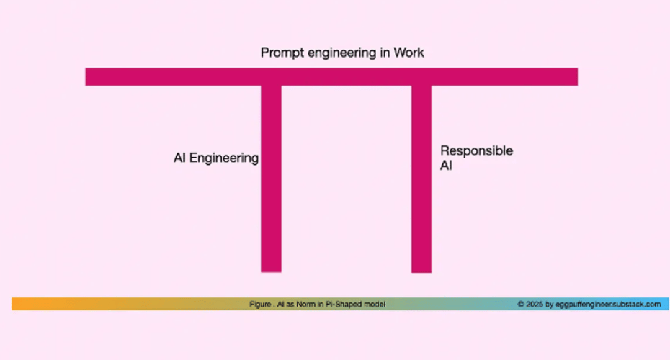Dev
3w
201

Image Credit: Dev
Why Pi-Shaped Teams Matter in This AI Era
- The persistent myth that data engineers are merely 'pipeline builders' hinders their true potential as software engineers and leads to talent undervaluation and underutilization.
- This myth can impede companies' adaptation to AI by ignoring data engineers' broader skillsets, forcing unnecessary hiring instead of utilizing existing talent.
- The limitation of data engineers' roles can hinder their growth and lead to underutilization within organizations.
- To unlock the full potential of data teams in the AI era, organizations must redefine roles to encompass a broader range of skills beyond traditional boundaries.
- Digital transformation encompasses product, insights, infrastructure, and technology, emphasizing the need for overlapping competencies within these domains.
- The Pi-shaped engineer concept promotes overlapping skill sets in diverse areas to drive innovation and real-world impact.
- Pi-shaped engineers possess deep expertise in at least two distinct areas and a broad understanding of others, fostering interdisciplinary knowledge.
- In a Pi-shaped model, roles like Data-Driven Product Manager, Infrastructure-Aware Developer, and AI-Empowered Professional become the norm across all functions.
- Organizations face challenges in cultivating a Pi-shaped culture, including engineers' resistance to branching out, leadership blind spots, and glorifying visibility over substance.
- Engineers can build a Pi-shaped culture by knowing their strengths, identifying adjacent skills, continuous learning, and active involvement in diverse projects.
Read Full Article
12 Likes
For uninterrupted reading, download the app